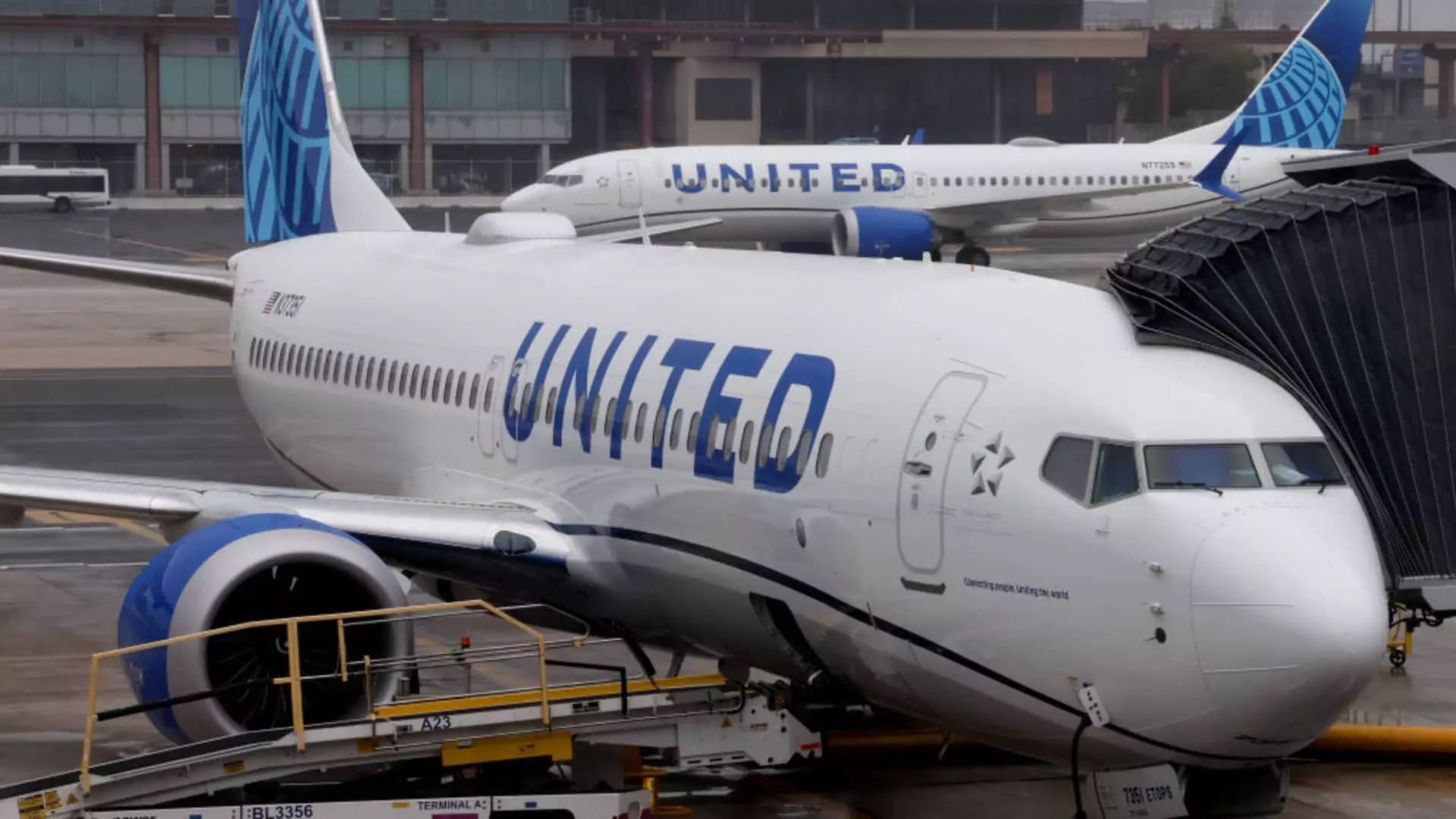United Airlines has recently emerged as a key player in the post-pandemic airline industry, significantly boosted by an impressive earnings report. While the company posted adjusted earnings of 91 cents per share, exceeding analyst expectations of 76 cents, the stock’s response was mixed when revenue of $13.21 billion failed to meet forecasts of $13.26 billion. Given the volatile nature of airline stocks, this underperformance raises critical questions about market expectations and the sustainability of United’s growth. A variance like this exposes the precarious nature of profitability in an industry still reeling from COVID-19, where every politicized measure, from government aid to public health mandates, can shift the financial landscape overnight.
The Decline of Interactive Brokers: A Cautionary Tale
In stark contrast to United Airlines, Interactive Brokers found itself under scrutiny after its first-quarter earnings fell just shy of expectations. With a reported $1.88 per share against an expected $1.92, a 5% drop in share value is particularly noteworthy. This situation serves as a crucial reminder that even technologically advanced companies are not immune to the pressures of investor expectations. The announcement of a four-for-one stock split and a modest dividend hike do little to mask the underlying issue: that investor sentiment is shifting rapidly and that market players should anticipate further unpredictability. As aspiring investors, this chasm between projections and results serves as a valuable lesson in the perceptions driving market trends.
J.B. Hunt: The Weight of Year-Over-Year Comparisons
Another notable performer, J.B. Hunt, experienced a 6% dip despite meeting and exceeding two significant financial metrics in its first quarter. However, the year-over-year decline in revenue and operating income speaks volumes about the changing tides in transport logistics. This is particularly alarming in a time when demand for transportation has surged due to e-commerce and supply chain adaptations post-pandemic. The transportation sector is often seen as a bellwether for the economy, making this dip not just a company issue, but a possible indication of a broader slowdown in economic momentum. Investors must question if this fall is an anomaly or a signal to pivot strategies in the logistics sector.
The Media Market Faceplant: Omnicom Group’s Struggles
Omnicom Group presents a compelling yet grim case study in media stocks, shedding over 2% despite remarkable adjusted earnings that exceeded expectations. In an era when advertising revenue is fluctuating wildly, how can a company post strong earnings yet still see negative movement in its stock price? This contradiction highlights investor wariness amid changing consumer behaviors, essentially signalling that market sentiment can sometimes create harsh realities irrespective of financial performance. In this landscape, companies must hope for a stronger alignment between public perception and their operational success.
Nvidia’s A 5% Drop Amid Geopolitical Concerns
Nvidia is grappling with significant challenges tied to international regulations, specifically regarding the export of its H20 graphics processing units to China. The impending $5.5 billion charge due to required licenses for such exports not only harmed their immediate stock price, shedding 5% in reaction to the news, but it also poses longer-term implications for tech firms operating in a politically charged global marketplace. Fear over losing market share in one of the world’s largest tech markets can drastically alter the strategies of tech companies. Investors need to be acutely aware of how government regulations can have cascading repercussions on profitability and market access, potentially reshaping the competitive landscape.
The uncertainties resulting from corporate quarterly performance, combined with the broader implications of political climates and consumer behaviors, create a complex milieu for investors. Each report adds another layer to the understanding of our financial ecosystem, making it imperative to proceed with caution and informed strategy.

